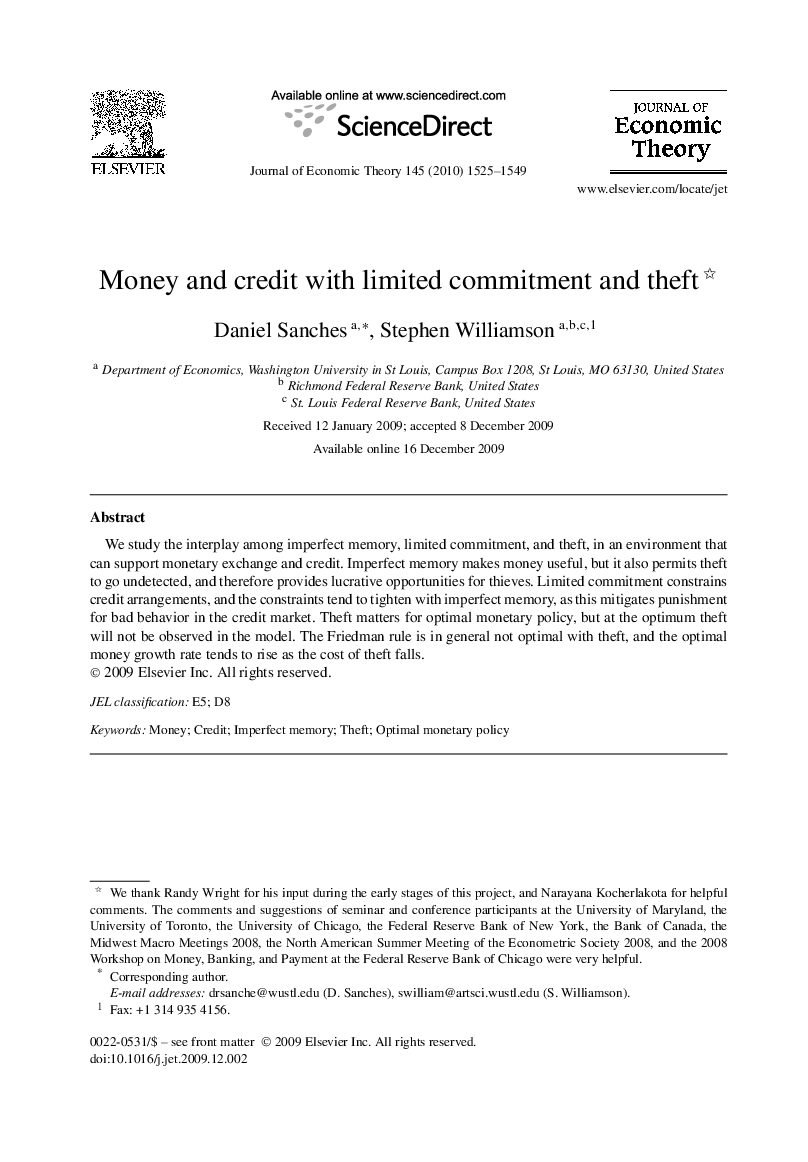| Article ID | Journal | Published Year | Pages | File Type |
|---|---|---|---|---|
| 956958 | Journal of Economic Theory | 2010 | 25 Pages |
Abstract
We study the interplay among imperfect memory, limited commitment, and theft, in an environment that can support monetary exchange and credit. Imperfect memory makes money useful, but it also permits theft to go undetected, and therefore provides lucrative opportunities for thieves. Limited commitment constrains credit arrangements, and the constraints tend to tighten with imperfect memory, as this mitigates punishment for bad behavior in the credit market. Theft matters for optimal monetary policy, but at the optimum theft will not be observed in the model. The Friedman rule is in general not optimal with theft, and the optimal money growth rate tends to rise as the cost of theft falls.
Keywords
Related Topics
Social Sciences and Humanities
Economics, Econometrics and Finance
Economics and Econometrics
Authors
Daniel Sanches, Stephen Williamson,
